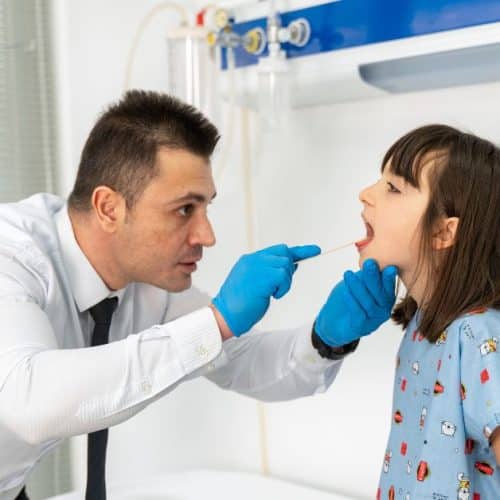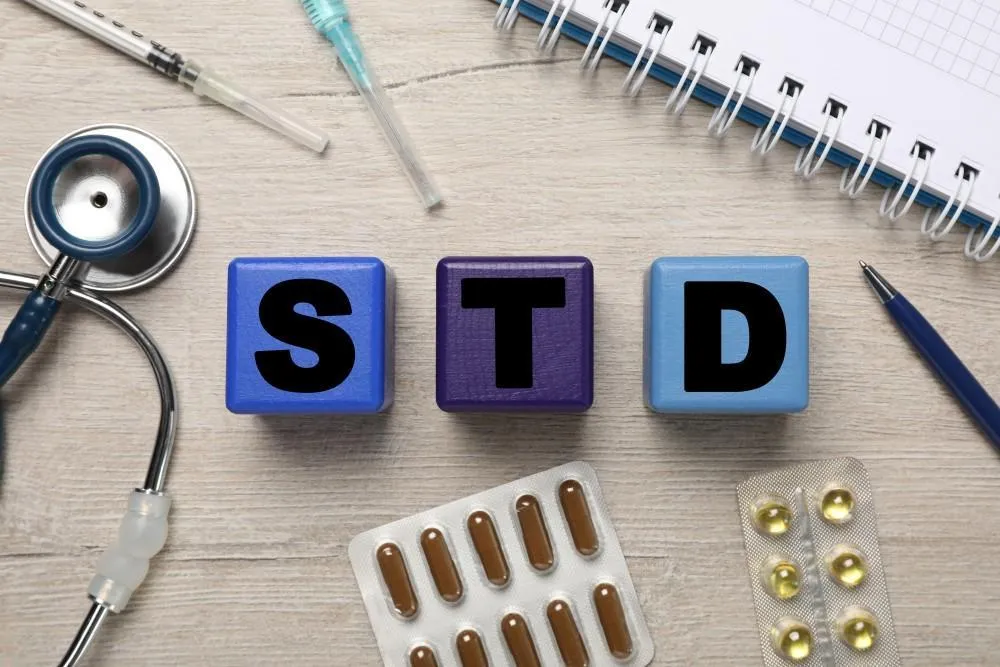Dizziness: Causes, Symptoms & Treatment

Very often patients come to a neurologist with dizziness. Indeed, no one has ever experienced it. This term describes a wide variety of sensations, from dizziness and impending loss of consciousness to spinning one’s own body or surrounding objects.
Almost 35% of the population faces dizziness symptoms during a lifetime. Most often, it is people after 60 years—20%, after 70 – 30%, and after 80 – 50%. Dizziness can severely interfere with work, driving, and other activities.
Common Causes of Dizziness
What causes dizziness? It can be both the main symptom of the disease and a secondary sign of some diagnoses. Sometimes, such discomfort expresses minor changes in the body’s functioning. Regular check-ups with your doctor highlight the importance of an annual physical exam to watch your health condition.
Inner Ear Problems
The inner ear is responsible for balance, so issues here can lead to dizziness. Paroxysmal Positional Vertigo (BPPV), Meniere’s disease, and vestibular neuritis are common causes of dizziness. These problems often involve fluid imbalances or inflammation, affecting the signals sent to the brain about body movement.
Circulatory Issues
Can lack of blood flow to the brain cause dizziness? It can be linked to circulatory problems where the brain doesn’t get enough blood flow. This can occur due to low blood pressure, atherosclerosis, heart disease, or arrhythmias.
Can poor blood circulation cause dizziness? Anemia, a condition with insufficient red blood cells to carry adequate oxygen to the body’s tissues, can result in dizziness. A drop in red blood cells can cause a person to feel faint or dizzy. These conditions can cause a temporary drop in blood flow, leading to lightheadedness or fainting.
Neurological Conditions
Certain neurological disorders, such as multiple sclerosis, Parkinson’s disease, or migraines, can cause dizziness symptoms. These conditions affect the brain’s ability to process balance and spatial orientation signals. A stroke, particularly one affecting the cerebellum or brainstem, can lead to sudden dizziness or vertigo. This type of dizziness is often accompanied by other symptoms, such as difficulty walking, vision changes, and numbness on one side of the body.
Though less common, brain tumors can cause dizziness if they affect parts of the brain responsible for balance and coordination. Other symptoms like headaches, changes in vision, and difficulty walking often accompany the dizziness.
Medications and Substance Use
Dizziness is a common side effect of various medications and substances. Certain drugs and chemicals can affect blood pressure, the central nervous system, or inner ear function, all of which play roles in maintaining balance.
Some medications, including those for blood pressure, sedatives, and antidepressants, list symptoms of dizziness as a side effect. Alcohol, drugs, or dehydration from excessive caffeine or nicotine can also lead to dizziness.
Other Contributing Factors
Various other factors can contribute to dizziness, including anxiety disorders, hypoglycemia, dehydration (read about 10 signs of dehydration), and heat exhaustion. Each of these conditions affects the body’s balance mechanisms differently.
Emotional factors such as anxiety, stress, and panic attacks can lead to dizziness. Hyperventilation during anxiety episodes can reduce carbon dioxide levels in the blood, resulting in lightheadedness.
Can malnutrition cause dizziness? Deficiencies in certain vitamins, particularly Vitamin B12, can lead to neurological symptoms, including this feeling. Vitamin B12 is crucial for nerve function, and its deficiency can cause neurological issues.
Hormonal fluctuations can lead to dizziness. Changes in hormone levels can affect blood pressure and circulation, leading to dizziness.
Types of Dizziness
Dizziness is a common symptom that can be described as feeling lightheaded, unsteady, or as if the room is spinning. There are four main types of dizziness, each with distinct characteristics. What type of dizziness is dangerous?
Vertigo
Vertigo is a type of dizziness or primary spinning, having the feeling that the concerned person is moving or the things around him or her are moving, although this is not the case. It is usually due to some disorders of the inner ear, notably benign paroxysmal positional vertigo, vestibular Neuritis, and Meniere’s disease. Vertigo can also be seen as being caused by migraines and or central nervous system diseases.
Lightheadedness
Lightheadedness is the feeling of fainting or that you may lose consciousness. It differs from vertigo in that it doesn’t involve a spinning sensation. Lightheadedness can be caused by dehydration, low blood sugar, anemia, or standing up too quickly, leading to a sudden drop in blood pressure (orthostatic hypotension).
Disequilibrium
This type of dizziness refers to a feeling of imbalance or unsteadiness, often described as being off-balance while walking. It can be caused by inner ear issues, neurological conditions like Parkinson’s disease, or musculoskeletal problems that affect balance.
Presyncope
Losing consciousness, or presyncope, is the sense that you are about to lose your balance. It is frequently accompanied by symptoms such as sweating, nausea, or visual symptoms. Presyncope is often associated with some forms of cardiovascular changes, such as hypotension, cardio pathologies, or vasovagal syncope—it, which is the fainting reflex.
Diagnosing the Cause of Dizziness
Check urgent care near you if you have some symptoms of dizziness. The examination of the patient begins with collecting anamneses, complaints and physical inspection. The doctor discovers when the dizziness began, how long the attacks last, and their character (constant, with fainting spells, etc.). It is also determined whether the dizziness is accompanied by other symptoms (pain, nausea, etc.). During the examination, some different tests are carried out, such as the evaluation of reflexes and gait. A primary care physician in Gaithersburg will help you measure blood pressure, determine the pulse, listen to the heart rhythm.
It also requires a set of adequate additional examination methods: clinical blood count, determination of blood glucose levels, general therapeutic examination, assessment of neurological status, consultation with an otorhinolaryngologist, neurological tests, audiometry, radiography of the cervical spine with functional tests, and brain MRI.
Treatment Options for Dizziness
Different diagnoses mean different dizziness treatments. While some conditions can be treated conservatively, others require urgent or planned surgical intervention.
Conservative treatment is prescribed by a narrow specialist who deals with the problem indicated by laboratory and instrumental tests.
Vertigo is not an independent diagnosis but a manifestation of the underlying disease. Therefore, symptomatic dizziness treatment will be required to eliminate the disease’s cause and its consequences. The first thing they try is to influence the symptoms. Then, they go deeper into the source and affect the epicenter of the disease.
The doctor will select the necessary medications and procedures and, in parallel, recommend exercise, nutrition, etc. Therapeutic techniques are aimed not only at stabilizing the patient’s condition but also at long-term prevention of recurrent vertigo attacks.
The effectiveness of dizziness treatment depends on the timeliness of diagnosis, the qualifications of the attending physician, and the patient’s responsible attitude to the recommendations received. Take care of yourself and be healthy!
When to Seek Medical Attention
Dizziness can be a common and usually harmless symptom, but in some cases, it may indicate a more serious condition. If you have any of the following, you should visit a health provider.
- Severe or persistent: Lasting for several days or weeks.
- Accompanied by other symptoms: Such as headaches, double vision, numbness, or weakness.
- Interfering with daily activities: Making it difficult to work, drive, or perform other tasks.
- Associated with sudden falls or loss of consciousness: This is a sign of a more serious disease.
If you have any of these symptoms of dizziness, it’s important to seek medical attention promptly to identify the cause and receive appropriate treatment. It may require immediate medical intervention.
Preventing Dizziness
Why lifestyle is important? Preventing dizziness involves a combination of lifestyle choices and awareness of potential triggers. Dehydration can lead to lightheadedness. Can malnutrition cause dizziness? It’s also important to maintain a balanced diet, ensuring that you get adequate nutrients and avoid large, heavy meals that can strain your digestive system and contribute to these feelings.
Regular physical activity plays a significant role in preventing dizziness. Training such as balance and coordination exercises improves the body’s ability to adapt and minimizes the occurrence of feeling faint.
Maintaining a healthy lifestyle also involves managing stress and getting enough sleep. High-stress levels can contribute to episodes of dizziness, while sufficient rest allows your body to recover and function optimally.
Conclusion
Dizziness can be a frustrating and sometimes debilitating symptom. By understanding its causes, making lifestyle changes, and seeking medical attention when necessary, you can effectively manage dizziness and improve your quality of life.
If you’re experiencing dizziness, don’t hesitate to consult a healthcare professional for proper evaluation and treatment. With the right steps, you can regain your balance and enjoy a more fulfilling life.

















































